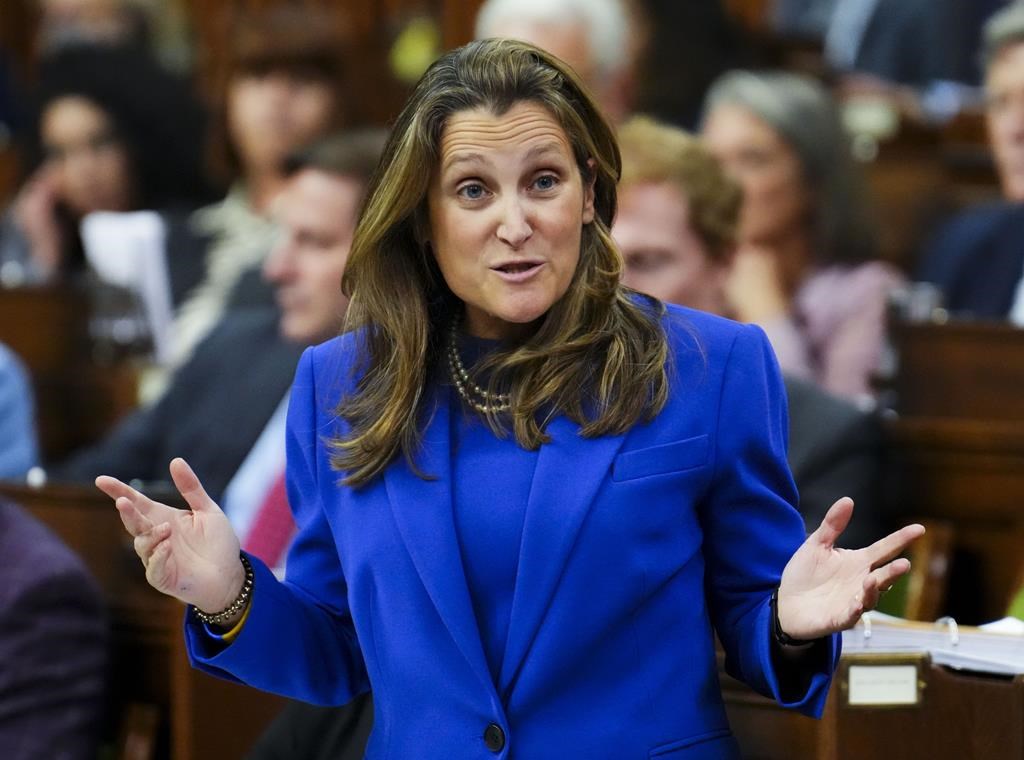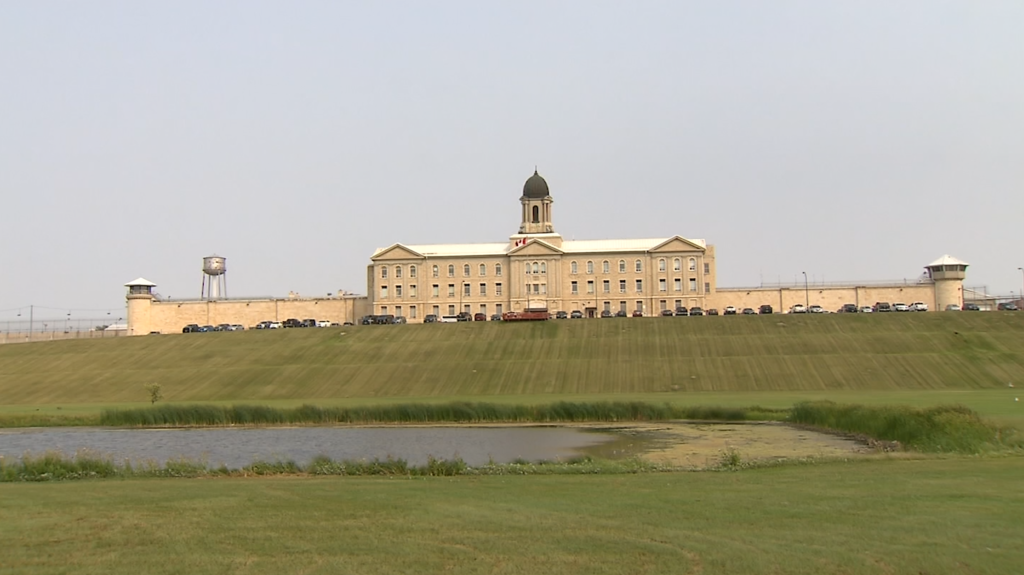As Canada faces potential recession, Freeland to give fall economic statement Nov. 3

Posted October 28, 2022 9:27 am.
Finance Minister Chrystia Freeland will deliver an update on federal finances Thursday in the fall economic statement, as anticipation builds for how Ottawa plans to cope with an impending slowdown.
The fiscal update, to be presented in the House of Commons, will also share the government’s outlook for an economy facing high inflation and staring down a potential recession in the coming months.
Freeland has stressed in recent weeks that the Liberal government is focused on fiscal discipline, so as not to further fuel inflation that has affected the cost of living, including grocery bills.
Canada’s annual inflation rate in September slowed to 6.9 per cent as gasoline prices tumbled, though the cost of groceries continued to climb.
Randall Bartlett, senior director of Canadian economics at Desjardins, said he expects the government to stick to its commitment on fiscal discipline given the current economic climate.
“I don’t think the federal government wants to work to fight against the Bank of Canada by putting in measures that will increase inflation,” Bartlett said.
Related: Bank of Canada raises interest rate for sixth time to 3.75%
The Bank of Canada has been combatting decades-high inflation with aggressive interest rate hikes since March. The central bank raised interest rates this week for the sixth time this year, with the half-percentage point rate hike bringing its key interest rate to 3.75 per cent.
In its latest monetary policy report, the Bank of Canada revised its economic projections, which now account for a significant economic slowdown.
It expects economic growth to stall by the end of this year and in the first two quarters of 2023, with growth somewhere between zero and 0.5 per cent, before gaining ground in the second half of next year.
However, the central bank noted slight shrinkage is just as likely.
Robert Asselin, senior vice-president with the Business Council of Canada, says fiscal discipline is especially important as the country faces high inflation, rising interest rates and low economic growth.
“The focus now should be on fiscal prudence to ensure the central bank can bring inflation back to its mandated target range,” Asselin said in a statement.
Desjardins forecasts the federal deficit to come in around $20 billion at the end of the fiscal year, though Bartlett notes that doesn’t include any spending that could be announced in the fall economic statement.
Monthly updates from the Finance Department have shown that federal finances have been improving as revenues have risen and COVID-19 pandemic spending has wound down.
In the first five months of the 2022-23 fiscal year, the federal government posted a $3.9 billion surplus compared to a deficit of $57.2 billion reported for the same period last year.
Bartlett says federal finances have been improving more than anticipated because of Canada’s tight labour market pushing up wages, corporations raking in high profits and inflation boosting tax revenues.
In the Liberals’ spring budget, the fiscal focus was on making life more affordable for people and giving a long-needed boost to Canadian productivity.
It is widely anticipated that next week’s fiscal update will show how Canada intends to respond to the Inflation Reduction Act in the U.S., as a way to remain competitive when it comes to attracting investments in green energy.








